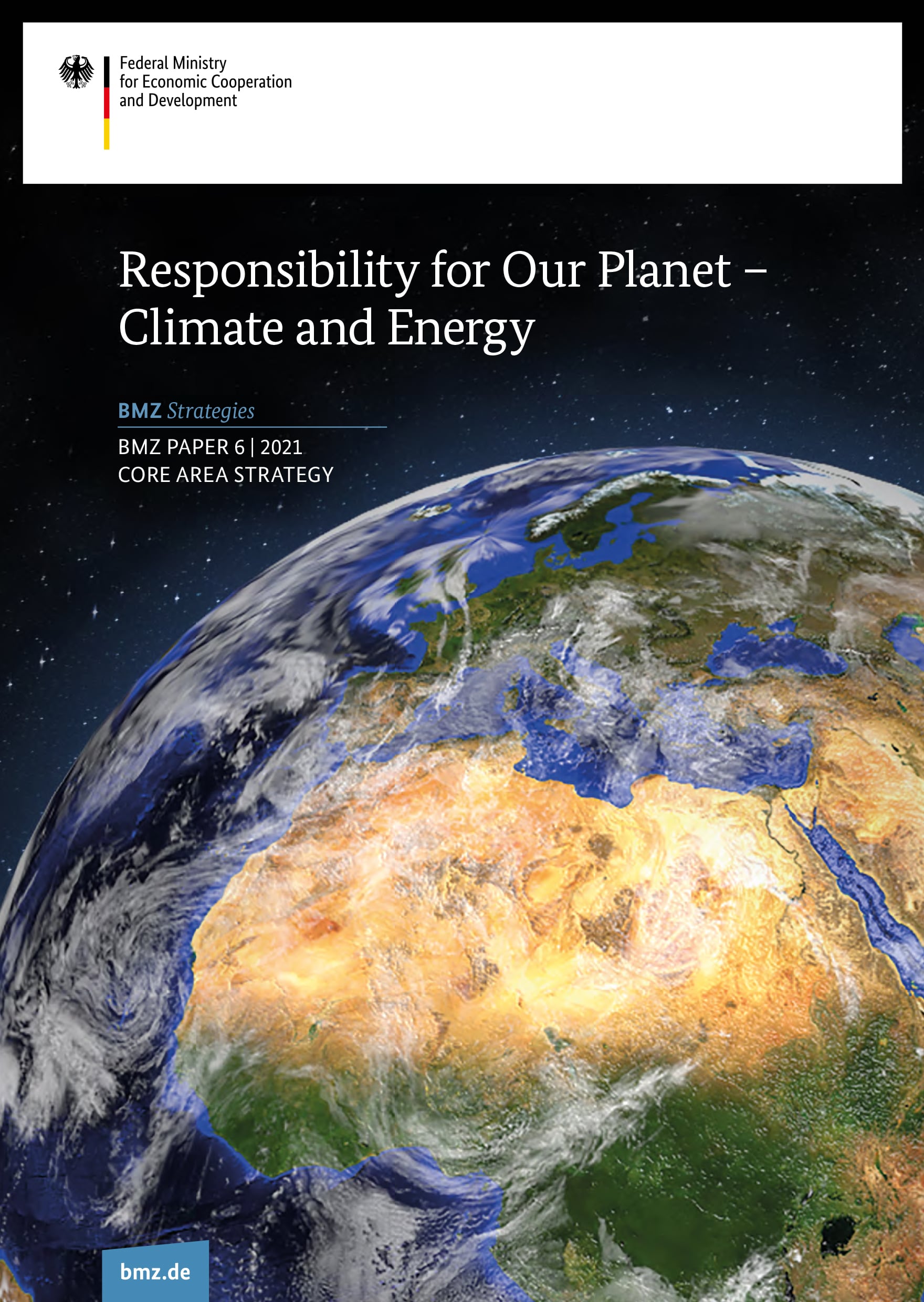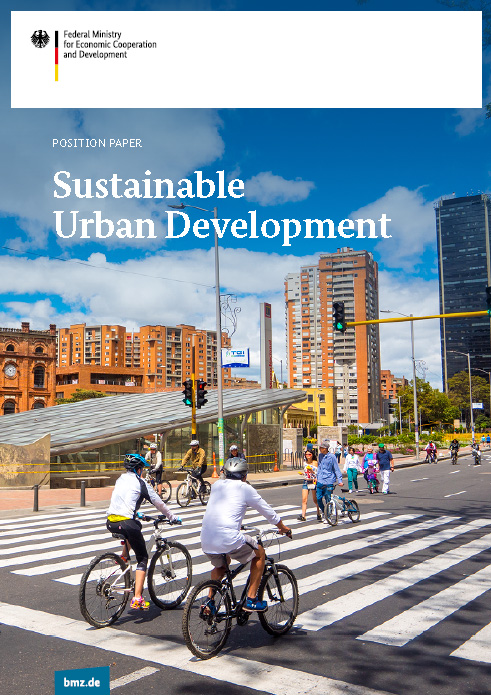About us
Urbanisation – A Global Challenge
More people than ever before live in urban areas and urbanisation is only predicted to increase over the next decades. Rapid urbanisation offers great opportunities for a more sustainable, inclusive, and just world, as cities are key to achieving global climate and development goals.
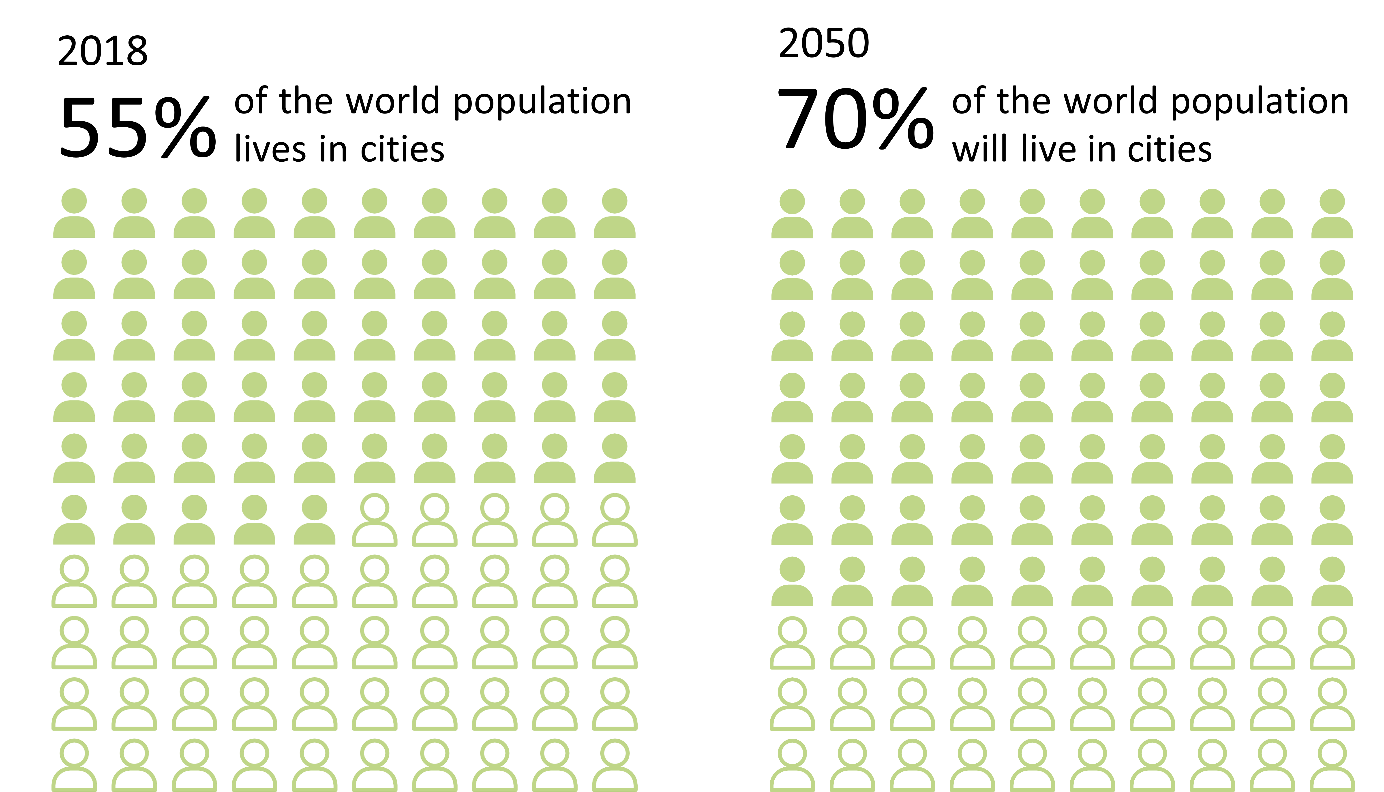
Source: United Nations, Department of Economic and Social Affairs, Population Division (2018). World Urbanization Prospects.
Due to cities’ spatial and social density, change simultaneously reaches large groups of people and thus shows significant impact. How we invest in urban infrastructure today will shape cities for decades to come. Therefore, the German Federal Ministry for Economic Cooperation and Development (BMZ) has made it a priority of German development cooperation to make cities climate-neutral, resilient, and liveable for all.
CityTransitions – Transforming Cities for a Liveable Future for All
Our vision: A liveable future for all through equitable urban transformation
We support national governments, stakeholders, as well as city governments and other urban actors with policy development, technical expertise, and funding to shape the sustainable cities of tomorrow.
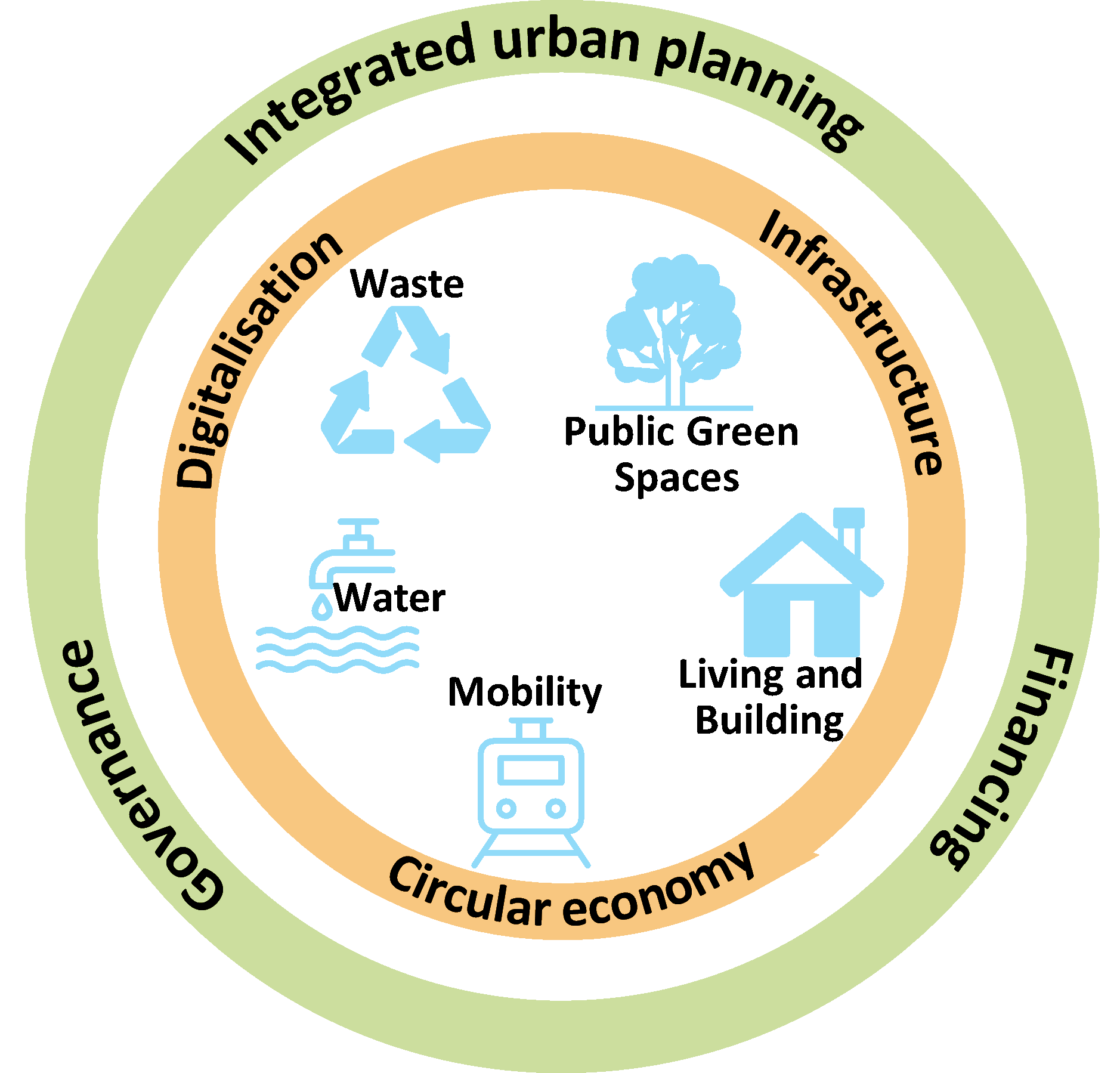
Source: BMZ (2023), Position Paper Sustainable Urban Development. Sustainable urban development priorities of German development cooperation.
Framework Conditions: Commitment to good governance, integrated planning approaches and access to financing:
- We support cities in thinking about the social, ecological, and economic dimensions of sustainable development across sectors and in implementing the 2030 Agenda in an integrated way.
- We support cities in creating a just transition towards climate neutrality and nature positivity (SDG 13). Climate change adaptation and sustainable energy are considered key elements of basic service provision (SDGs 1, 7 and 11).
- We base our approaches on the supply of infrastructural and basic services, digitalisation and innovation, as well as circular economy models to create prospects for city-dwellers in a carbon-neutral future (SDG 8 and SDG 12). We are guided by key principles of gender equality (SDG 5), reducing inequalities (SDG 10) and leaving no one behind.
- We focus on the key sectors of housing and construction, mobility, water, waste management (SDGs 6, 9, 11 and 12) and public spaces.
Urbanisation, Poverty, and Inequality
For a successful “Just Transition”, we cannot only make the decarbonisation of cities’ economies socially acceptable but need to combine it with the reduction of inequalities.
Cities must offer secure basic services, good employment, and liveable housing, especially for the most vulnerable groups.
Sustainable construction and mobility, waste and circular economy, renewable and demand-driven energy supply, as well as development and maintenance of nature-based solutions, green-blue and green infrastructure and agro-ecological urban agriculture create new, secure, and sustainable employment opportunities.
Local governments and administrations must work closely with the population to reach vulnerable groups directly through services of general interest and social programmes and shape the transformation in a locally equitable way so that no one is left behind
Cities and Climate Change
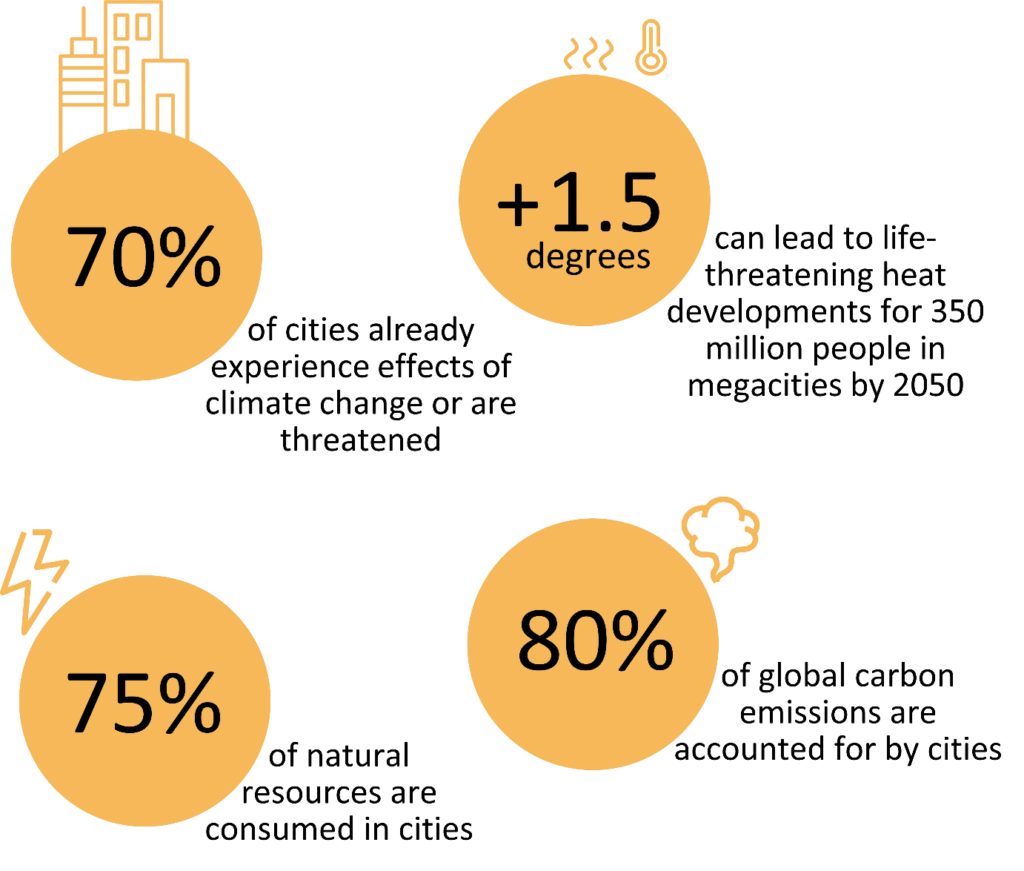 Did you know that cities produce 80 percent of global carbon emissions and consume approximately three quarters of all natural resources?
Did you know that cities produce 80 percent of global carbon emissions and consume approximately three quarters of all natural resources?
Thus, cities hold an enormous climate and environmental protection potential, especially in the areas of basic supply, mobility, construction, water, and waste management.
Cities are particularly affected by climate change. Their typical urban characteristics such as high population and building density, land sealing and lack of green spaces, as well as their frequent exposure to rivers and coasts make cities vulnerable to heat events, floods and landslides, disease outbreaks.
Residents of informal settlements and other vulnerable groups are disproportionately more affected by the impacts of climate change, as they have fewer social safety nets and reserves and live in more exposed neighbourhoods with poorer infrastructure. Increasing natural disasters worldwide underlines the need for resilient urban development.
Graphic sources: Intergovernmental Panel on Climate Change (2019). Global Warming of 1.5°C.
National Frameworks and Local Capacities
Frequently, decentralisation is not accompanied by the transfer of responsibility and resources to city administrations. Therefore, cities often lack adequate financial resources to fulfil their mandates, while municipalities often lack efficient financial management as well as human and organisational administrative capacities.
Municipal decision-making processes often lack transparency and sufficient participation of the population. Women, people living in poverty and other structurally disadvantaged persons and groups are significantly underrepresented in urban and transport planning.
Missing or weak national urban development policies do not provide an adequate framework and mere sectoral policies often fall short.
Urban Finance
Cities require 70 percent of the world’s infrastructure investments. However, investments fall short by about 1 trillion USD annually, with only a fraction of the investments going to countries in Sub-Saharan Africa and Southeast Asia. Thus, regions where the greatest urban growth is taking place receive the least investment. Weak capacity and lack of resources in city administrations mean that infrastructure investments are not prepared in sufficient numbers and with the necessary quality and sustainability.
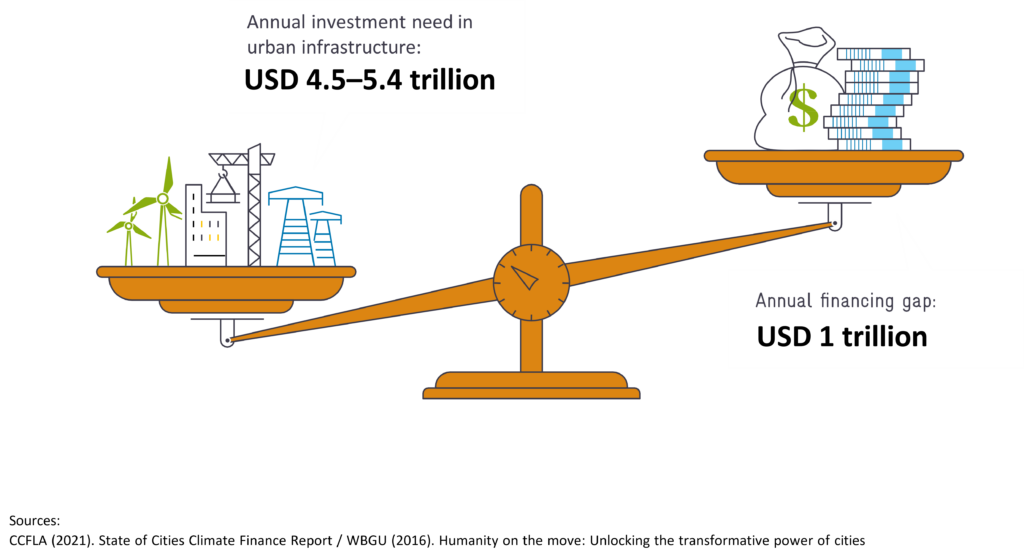
The solution: Robust finances and access to reliable sources of funding are the foundation for sustainable urban development. Balanced financing provides cities with the leeway to make investments that enable adequate basic services for residents, reduce inequalities and address climate and disaster risks. This is the only way to save costs in the long term and to adequately respond to crises and external shocks, such as the COVID 19 pandemic, and to promote a just transition.
Relevant BMZ Publications
In its Core Area Strategy, BMZ places its focus on Climate Change Mitigation and Adaptation, Renewable Energy and Energy Efficiency, and Sustainable Urban Development.
BMZ defines sustainable urban development as one of three areas of intervention in its Core Area Strategy. Its approaches are presented in the Position Paper.

